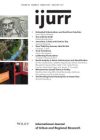This article engages with the theme of the symposium by examining the role and meaning of networks in the context of a former coal‐mining region in the UK. Mining communities have historically been noted by sociologists and historians for their strong social ties and extended families as well as for forming the bedrock of discussion of class and place. In the wake of the closure programme of the 1980s and early 1990s, such identities have been fundamentally challenged. The notion of networks is explored in four distinct but ultimately interrelated senses: occupational/work networks; networks around place; networks of class relations; and, finally, networks as relationships of family, kin and generation. Material presented here is based on research that investigated four former coalfield communities in the UK after closure, focusing on a former pit village in the North East of England. It begins with a discussion of community and the coalfield within sociological and historical literatures. It then proceeds to discuss the changing nature of community and social networks post‐coal by focusing on the experience of two separate cohorts of former workers. It concludes by arguing for a historical understanding of the patterning of networks.
Details
Written by:
Tim Strangleman
Digital Object Identifier (DOI)
10.1111/1468-2427.00310
About DOI
Read full article as PDF
Read full article as HTML
See the references for this article
